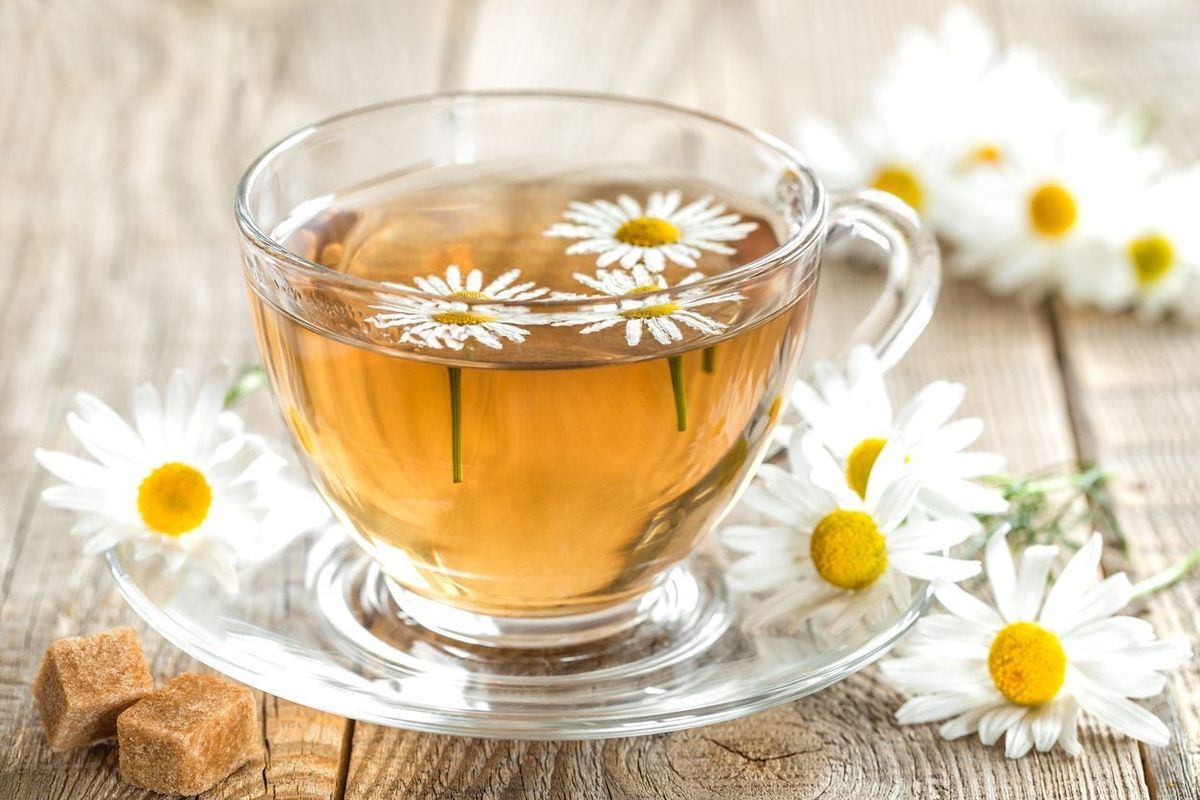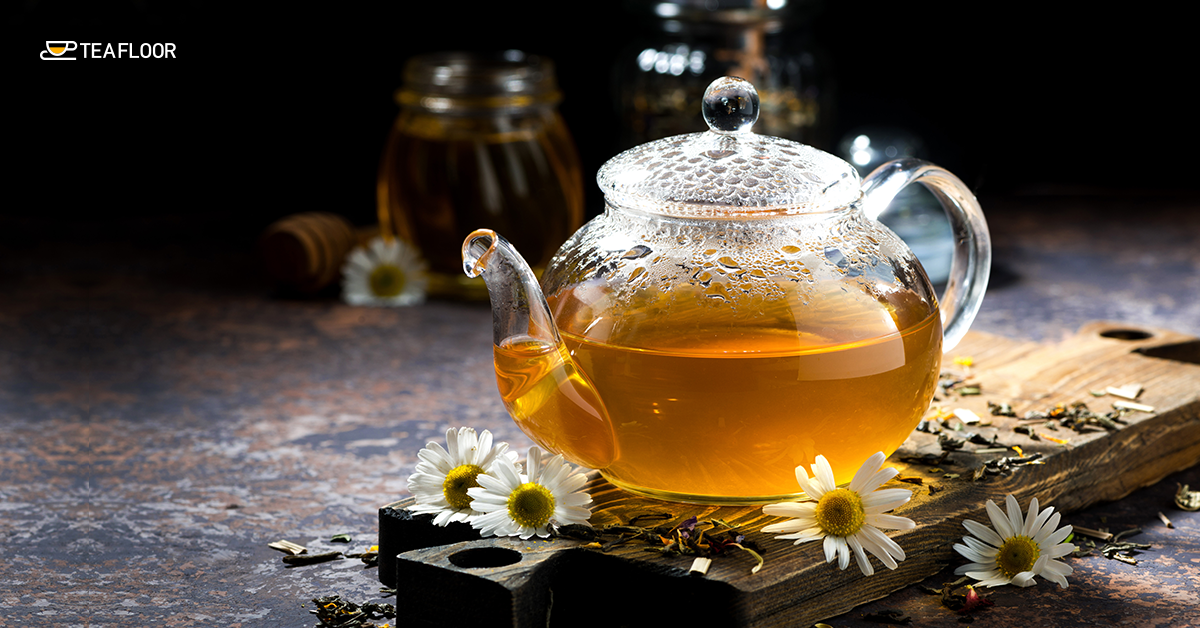Chamomile tea, a timeless herbal infusion, has been cherished for centuries for its soothing properties and myriad health benefits. Made from the dried flowers of the chamomile plant, this golden-hued tea is renowned for its calming effects, delicate flavor, and versatility in promoting wellness. Whether you’re seeking a natural remedy to ease stress, improve sleep, or boost your overall health, chamomile tea offers a magical brew that can enhance your well-being. In this article, we’ll explore the origins of chamomile tea, its numerous health benefits, and how to incorporate this delightful beverage into your daily routine.
The Origins and History of Chamomile Tea

Chamomile tea has a rich history that dates back to ancient civilizations. The ancient Egyptians, Greeks, and Romans valued chamomile for its medicinal properties and used it to treat various ailments, including digestive issues and skin conditions. In medieval Europe, chamomile was a popular remedy for fevers and colds, and it was often referred to as the “plant’s physician” because of its ability to revive ailing plants when planted nearby.
The word “chamomile” is derived from the Greek word “chamaimēlon,” which means “earth apple,” referring to the plant’s apple-like scent. Chamomile tea has since become a beloved beverage worldwide, celebrated for its gentle yet effective therapeutic properties.
The Health Benefits of Chamomile Tea
Promotes Relaxation and Reduces Stress
Chamomile tea is perhaps best known for its calming effects. The natural compounds in chamomile, such as apigenin, bind to certain receptors in the brain, helping to reduce anxiety and promote relaxation. Drinking a cup of chamomile tea can be a comforting ritual that helps you unwind after a long day, alleviating stress and tension.
Improves Sleep Quality
For those struggling with insomnia or restless nights, chamomile tea can be a gentle and natural sleep aid. Its mild sedative properties can help you fall asleep faster and improve the overall quality of your sleep. A warm cup of chamomile tea before bedtime can signal to your body that it’s time to wind down, making it easier to achieve a restful night’s sleep.
Supports Digestive Health
Chamomile tea has been traditionally used to soothe digestive issues such as indigestion, bloating, and gas. Its anti-inflammatory and antispasmodic properties can help relax the muscles in the digestive tract, easing discomfort and promoting healthy digestion. Drinking chamomile tea after meals can aid in digestion and prevent digestive upsets.
Boosts Immune System
The antioxidants present in chamomile tea, including flavonoids and terpenoids, can help strengthen the immune system. Regular consumption of chamomile tea may reduce the frequency of colds and other infections by enhancing the body’s natural defenses. Additionally, chamomile’s anti-inflammatory properties can help reduce symptoms of illness and promote faster recovery.
Alleviates Menstrual Pain
Chamomile tea is often recommended for women experiencing menstrual cramps and discomfort. Its anti-inflammatory and muscle-relaxing properties can help reduce the severity of menstrual pain and ease other symptoms associated with menstruation, such as bloating and mood swings. Drinking chamomile tea regularly during your menstrual cycle can provide natural relief and improve your overall well-being.
Enhances Skin Health
Chamomile tea can also be beneficial for your skin. Its anti-inflammatory and antioxidant properties can help soothe skin irritations, reduce redness, and promote healing. Applying cooled chamomile tea to the skin can alleviate conditions such as eczema, acne, and sunburn. Drinking chamomile tea can also contribute to a healthy complexion by reducing inflammation and promoting hydration from within.
How to Make the Perfect Cup of Chamomile Tea
Making a cup of chamomile tea is simple and can be done with just a few ingredients. Here’s a basic recipe to help you prepare this soothing beverage:
Ingredients:
- 1-2 teaspoons of dried chamomile flowers or 1 chamomile tea bag
- 1 cup of boiling water
- Honey or lemon (optional)
Instructions:
- Place the dried chamomile flowers or tea bag in a cup.
- Pour boiling water over the chamomile and let it steep for 5-10 minutes. The longer it steeps, the stronger the flavor will be.
- Strain the tea if you used dried flowers. If you used a tea bag, simply remove it from the cup.
- Add honey or lemon to taste, if desired.
- Enjoy your warm, soothing cup of chamomile tea.
Incorporating Chamomile Tea into Your Daily Routine
Morning Ritual
Start your day with a cup of chamomile tea to set a calm and positive tone for the day ahead. While chamomile tea is often associated with relaxation and bedtime, its gentle, soothing properties can also help you ease into your morning routine with a sense of tranquility and focus.
Afternoon Break
Take a break from your busy day with a mid-afternoon cup of chamomile tea. It can help reduce stress and rejuvenate your mind and body, providing a much-needed respite from work or other daily responsibilities. Pair it with a healthy snack for a complete and nourishing break.
Evening Wind-Down
Chamomile tea is an excellent choice for winding down in the evening. Enjoy a cup after dinner to aid digestion and prepare your body for rest. The act of brewing and sipping chamomile tea can become a comforting bedtime ritual that signals to your body that it’s time to relax and get ready for sleep.
Self-Care and Wellness
Incorporate chamomile tea into your self-care routine by using it in various wellness practices. Use cooled chamomile tea as a facial toner to soothe and refresh your skin. Add it to your bath for a relaxing soak that can ease muscle tension and promote overall relaxation. Chamomile tea can also be used as a hair rinse to condition and add shine to your hair.
Exploring Different Varieties of Chamomile Tea

German Chamomile
German chamomile (Matricaria recutita) is the most commonly used variety of chamomile for making tea. It has a sweet, apple-like flavor and is known for its potent medicinal properties. German chamomile is often used in teas, essential oils, and herbal remedies.
Roman Chamomile
Roman chamomile (Chamaemelum nobile) is another variety of chamomile that is sometimes used to make tea. It has a slightly bitter taste compared to German chamomile and is known for its calming and anti-inflammatory properties. Roman chamomile is also used in aromatherapy and as a ground cover in gardens.
Blended Chamomile Teas
Chamomile is often blended with other herbs and flavors to create unique and delicious tea blends. Common additions include lavender, peppermint, lemon balm, and vanilla. These blends can enhance the flavor and provide additional health benefits. Experimenting with different chamomile tea blends can help you discover new favorites and enjoy a variety of flavors.
Conclusion: Embrace the Magic of Chamomile Tea
Chamomile tea is a versatile and delightful beverage that offers a wealth of health benefits and soothing properties. Whether you’re seeking to reduce stress, improve sleep, support digestion, boost your immune system, alleviate menstrual pain, or enhance your skin health, chamomile tea can be a natural and effective remedy.
By incorporating chamomile tea into your jpslot daily routine, you can experience its calming and therapeutic effects, transforming your well-being and quality of life. From its rich history and traditional uses to its modern applications and varieties, chamomile tea continues to be a beloved and cherished herbal infusion.
Discover the soothing power and health benefits of chamomile tea, and let this magical brew elevate your health and wellness journey. Whether you enjoy it in the morning, afternoon, or evening, chamomile tea is a timeless elixir that can bring peace, comfort, and healing to your life. Embrace the magic of chamomile tea and savor the tranquility it brings with every sip.



